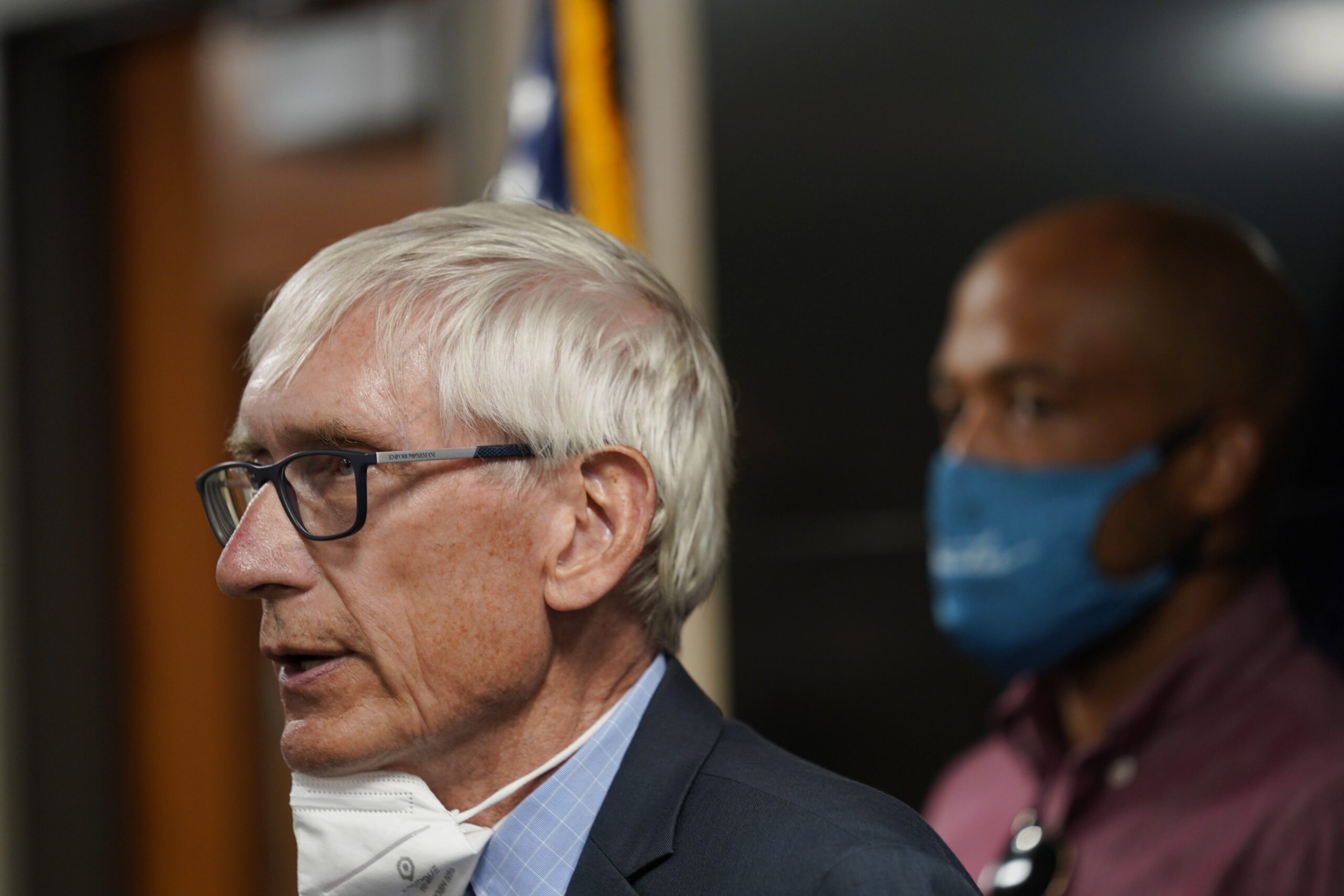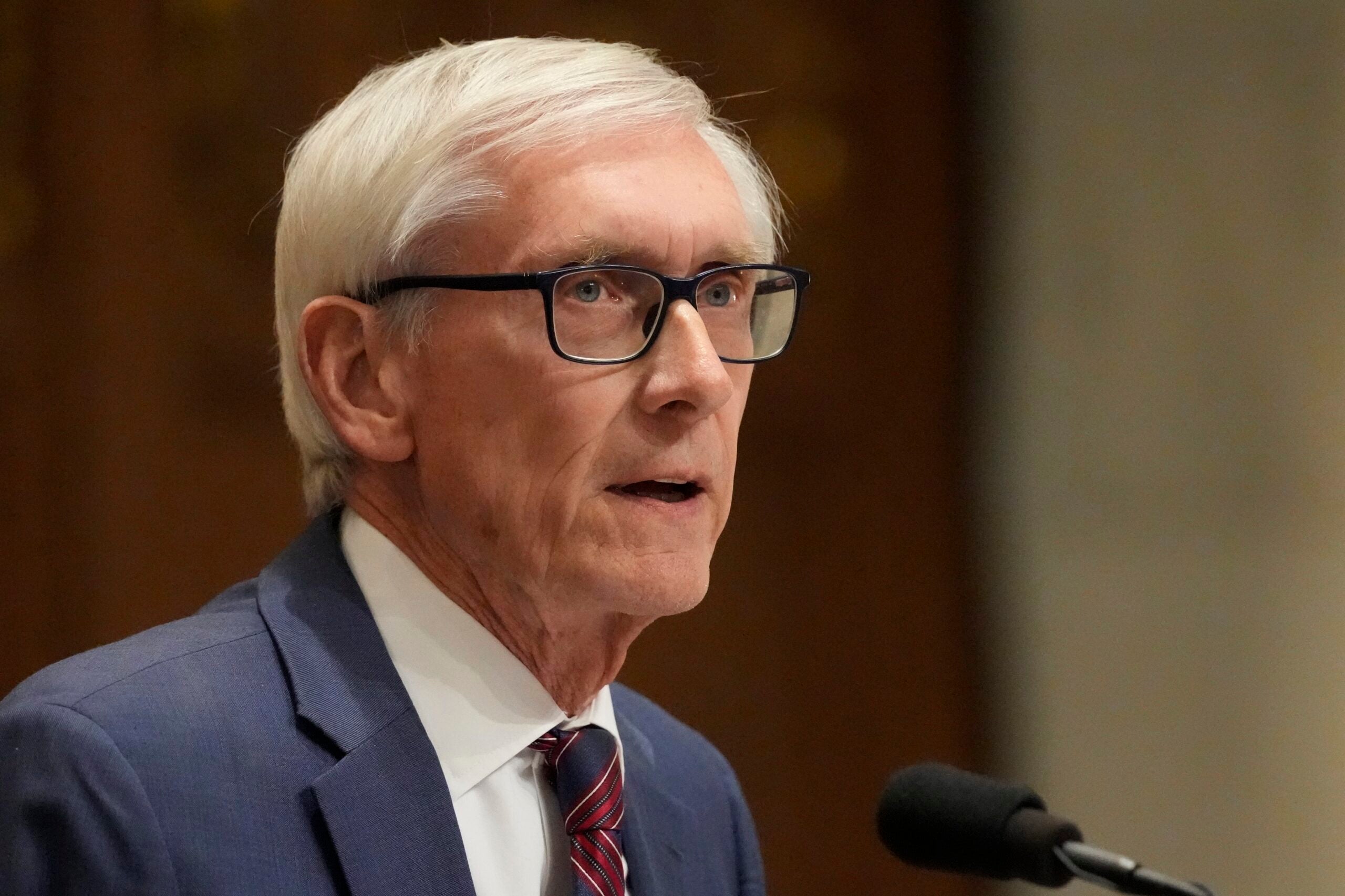Gov. Tony Evers says he is counting on people’s good will to slow the spread of the coronavirus as COVID-19 cases have surged to new heights and the state’s top epidemiologist warned Wisconsin had entered a “crisis.”
“We are nine months into this pandemic,” Evers said Tuesday during a media briefing. “It’s not slowing down. It’s picking up speed. We have got to put the brakes on this pandemic.”
Evers spoke on a day when Wisconsin reported 17 new deaths from COVID-19, the highest number in a single day since May.
News with a little more humanity
WPR’s “Wisconsin Today” newsletter keeps you connected to the state you love without feeling overwhelmed. No paywall. No agenda. No corporate filter.
The Wisconsin Hospital Association also reported 646 hospitalizations from COVID-19 statewide, including 205 COVID-19 patients being treated in intensive care units. Both numbers were new records.
Wisconsin’s seven-day average for the total and percentage of positive tests also hit new highs Tuesday, according to numbers from the state Department of Health Services.
Evers, who has issued a statewide mask mandate, said the key to slowing the spread of the coronavirus now is for people to take it upon themselves to stay home when they don’t need to go out.
“Skip the play dates, the dinner parties, family get-togethers and work conferences or any other gatherings with people you don’t live with for the time being,” Evers said. “I cannot stress this enough. No party, no bar, no gathering is worth it.”
But beyond the mask mandate he already issued, Evers didn’t signal new action from state government, saying the state Supreme Court had limited his options and Republican lawmakers were unwilling to work with him.
The court ruled in May that Evers’ administration had exceeded its authority when it issued a “Safer at Home” order requiring many businesses, like bars and restaurants, to remain closed.
The court said future orders like “Safer at Home” would need to be run through the Legislature first through the emergency rulemaking process. That process gives a panel of lawmakers veto power over new orders, a power GOP lawmakers signaled in May they were willing to use.
“If they have some good ideas, let’s have at it, but in the past, they were very much opposed to that,” Evers said.
Spokespeople for Assembly Speaker Robin Vos, R-Rochester, and state Senate Majority Leader Scott Fitzgerald, R-Juneau, didn’t respond to emails Tuesday asking whether the state needed to take new steps to address the spike in COVID-19 cases.
Dr. Ryan Westergaard, chief medical officer of the Bureau of Communicable Diseases at the Department of Health Services, warned that the increase in hospitalization numbers was a sign that the state was now in a “generalized epidemic” where contact tracers can no longer try to isolate the disease.
“It’s safe to assume that the virus is everywhere, so everyone needs to change their behavior,” Westergaard said.
Westergaard said that respiratory viruses tend to spread more rapidly when it gets cold and people are forced indoors.
“We’re setting records now at a point which is the beginning of respiratory virus season,” Westergaard said. “If we do nothing differently, I would say it’s a high likelihood that it’s going to get worse before it gets better.”
While the Supreme Court order from May limited Evers’ options, justices ruled that his administration retained the power to close schools under state law.
Evers said Tuesday he was unlikely to use that power.
“People have to recognize this isn’t just about schools. We’re operating under community spread here. And we can solve this with the tools we have in place,” Evers said.
Evers said it could be helpful if retailers reminded people to wear masks, as they did in the earlier days of the pandemic. But he said the state didn’t plan to arrest or fine people who violate his mask order.
“We are counting on good will of the people of Wisconsin to make those changes,” Evers said.
Wisconsin Public Radio, © Copyright 2025, Board of Regents of the University of Wisconsin System and Wisconsin Educational Communications Board.






